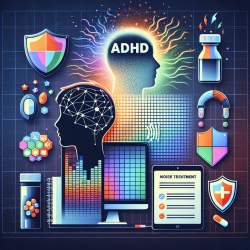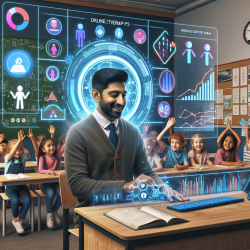Unlock the Secret to Resolving Special Education Disputes with Ease!
As a Special Education Director, one of the most challenging aspects of my role is ensuring that parents and school districts work harmoniously to provide the best possible education for students with disabilities. Disagreements can arise, and when they do, it's crucial to have a process in place that is both effective and collaborative. Enter special education mediation—a game-changer in dispute resolution.
Special education mediation is a voluntary process where parents of students with disabilities and school district personnel meet with a specially trained, impartial mediator. The goal? To work out differences in a collaborative way. This process is essential in resolving disputes related to the identification, evaluation, educational placement, or provision of a free appropriate public education (FAPE) to a student with a disability or a student suspected of having a disability.
Why Choose Mediation?
Mediation offers several compelling benefits:
- Cost-Effective: Mediation is generally less expensive than due process hearings.
- Time-Saving: The process is typically quicker, allowing for timely resolutions.
- Voluntary Participation: Both parties must agree to participate, ensuring a willingness to collaborate.
- Customized Solutions: Parties have the flexibility to devise their own solutions, often leading to more satisfactory outcomes.
- Enforceable Agreements: Written agreements are enforceable in any State court of competent jurisdiction or in a district court of the United States.
The mediator, trained in effective mediation techniques, facilitates the process by helping participants listen to each other's views and develop mutually satisfactory solutions. This approach not only resolves the current dispute but also fosters a stronger partnership between parents and school districts moving forward.
How to Arrange Mediation
Mediation is arranged through the school district in collaboration with a Community Dispute Resolution Center (CDRC). To find the nearest CDRC, refer to the New York State Unified Court System's list of local Community Dispute Resolution Centers.
Additional Resources
For those looking to delve deeper into the mediation process, the document "Helping Parents and School Districts Become More Effective Partners – Special Education Mediation" offers a comprehensive Q&A that clarifies how parents and school districts can use mediation to resolve special education issues collaboratively.
By embracing mediation, we can transform disputes into opportunities for growth and understanding, ultimately benefiting the students we serve. For more information, please follow this link.










